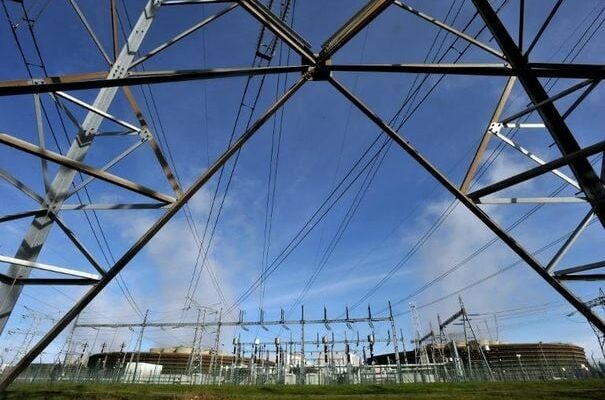Environmentalist, president of Ensemble sur nos territories, Senator Ronan Dantec is worried. According to him, many important subjects relating to energy are not debated. As if France was moving forward with its eyes closed, counting on luck to avoid the pitfalls to come. By ignoring the real costs of electricity, our country is preparing for serious disappointments, warns this fan of planning. Not only does France suffer from the Asterix village syndrome on the European level, but it risks, in the long term, overproduction of electricity, as we lack coordination, between on the one hand the development of renewable energies and another, the rise of nuclear power.
L’Express: Why are you sounding the alarm on French energy policy?
Ronan Dantec: Because our energy system is going in all directions, which shows that it is not sufficiently managed. If we continue as if nothing had happened, we are heading for disaster, a bit like when a cyclist drags down a good part of the peloton with his fall. For example, we do not look enough at the costs of producing electricity abroad. However, this is a central question since our economic competitiveness depends on it.
In terms of nuclear power, the last known costs for the EPR remain those of Hinkley Point, i.e. 120 euros per megawatt hour produced. However, this summer, EDF won a contract in Israel for the construction of a solar power plant whose production cost barely exceeds 17 euros per megawatt hour. How are we going to manage such gaps tomorrow? This question should be on the table, given the inevitable increase in interconnections within Europe and the speed with which wind and solar power are developing in the south and north of the Old Continent. We are going to see electrons arriving on the French market that are much cheaper than those we produce with nuclear power. Strangely, this question is not debated at all!
What could be the implications of the arrival of these cheap electrons?
Several scenarios are possible. France could try to withdraw into itself, by not letting in electrons from other countries and by slowing down interconnections. But we can clearly see that this position would be difficult to maintain at European level. Furthermore, some of our companies could decide to try the adventure in other countries, to benefit from the lowest electricity production costs. This question of the insertion of the French model within Europe must be asked. Like the village of Asterix, we do not look closely enough at what is happening to our neighbors.
Is the eternal opposition between nuclear and renewables preventing France from choosing a course?
The nuclear industry is on the offensive. But in the current situation, there is no coordination between these two sectors. However, they participate in France’s energy future, as indicated in the multi-annual energy programming framework document (PPE). But behind the scenes, some nuclear players want to stop the development of renewable energies (EnR). And defenders of solar and wind worry about possible “stop-and-go” and periods of negative prices that slow down investment. We decided to develop renewables and maintain all nuclear power. But in truth, we don’t know how to manage the whole thing.
France and Europe even risk overproduction of electricity in the long term, because decarbonization is not going fast enough. There is a huge stake in not weakening the European Green Deal, which is our response to the Ukrainian crisis and our dependence on Russian gas and fossils. In France, not only do we not have a coordinated strategy but our budgetary constraints are reflected in a decline in aid for electrification, very noticeable in the collapse of heat pump sales. Electricity consumption does not increase as expected in the scenarios of RTE, the French network manager. So far, the German market, which needs to import electrons when the wind is not blowing enough, has been able to absorb the surplus electricity. But for how long?
What about the balance of power between renewable energy and nuclear power at the European level?
France is playing its part. She wants to review the renewable energy deployment targets to avoid paying penalties because she is late. She also wants to call into question the regulatory system which gives priority to renewable energies on the European electricity network. However, the balance of power remains favorable to renewable energies. We must not forget that the Germans, the Spanish, and the Northern countries have invested considerable sums. They are therefore not ready to give nuclear power privileged access to the network.
How do we get out of this situation?
Through debate and planning. We have three major manufacturers in France. Engie in renewables, EDF in nuclear, Total in fossil and renewable energies. We absolutely need to articulate these three actors. Today, they have no instructions. It’s as if we were saying to them: “May the best man win”. We must also strongly develop electricity storage to couple it with renewable energies, which involves defining the role of our large hydroelectric dams.
Above all, we must avoid “stop-and-go” in terms of energy policy. There could be some on renewable energy in the future, if for example overproduction becomes chronic. To be competitive, we must aim for a production cost of around 80 euros per megawatt hour for electricity production and 20 euros for storage. Finally, let’s not forget to invest in the energy transition in Africa. Investing in developing countries is the most profitable from the point of view of combating climate change. However, currently, we are witnessing a withdrawal of French actors in this area.
.
